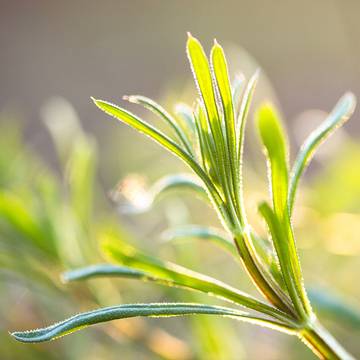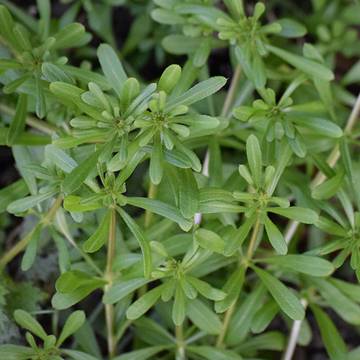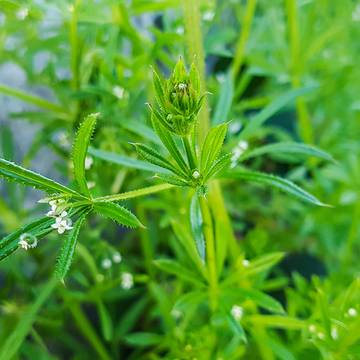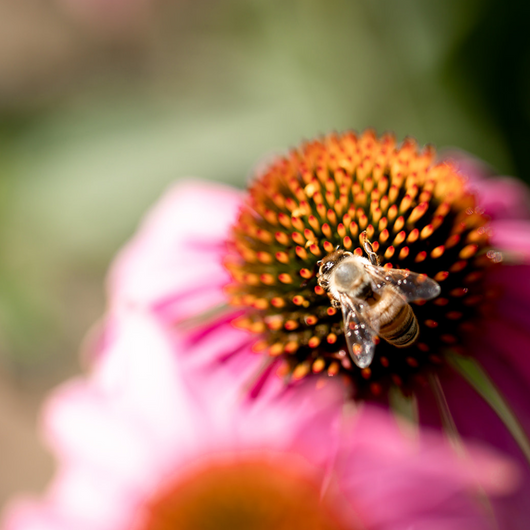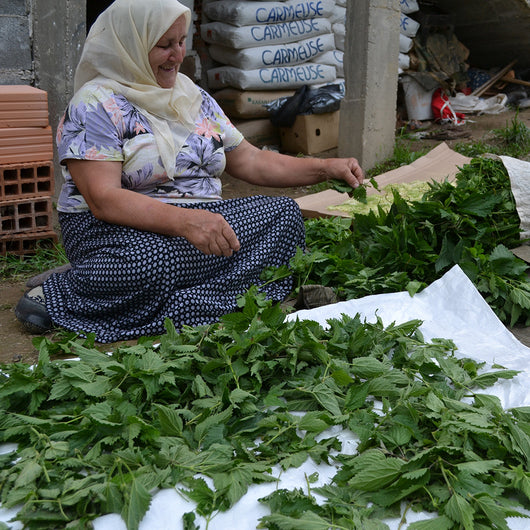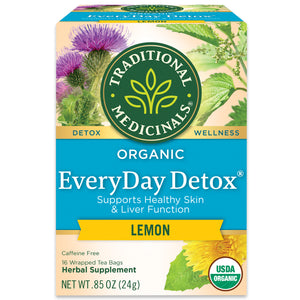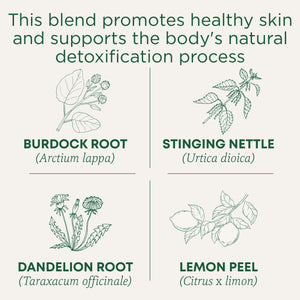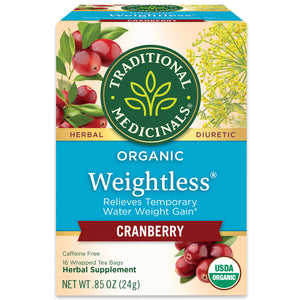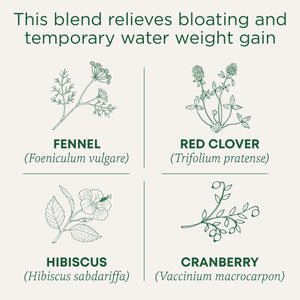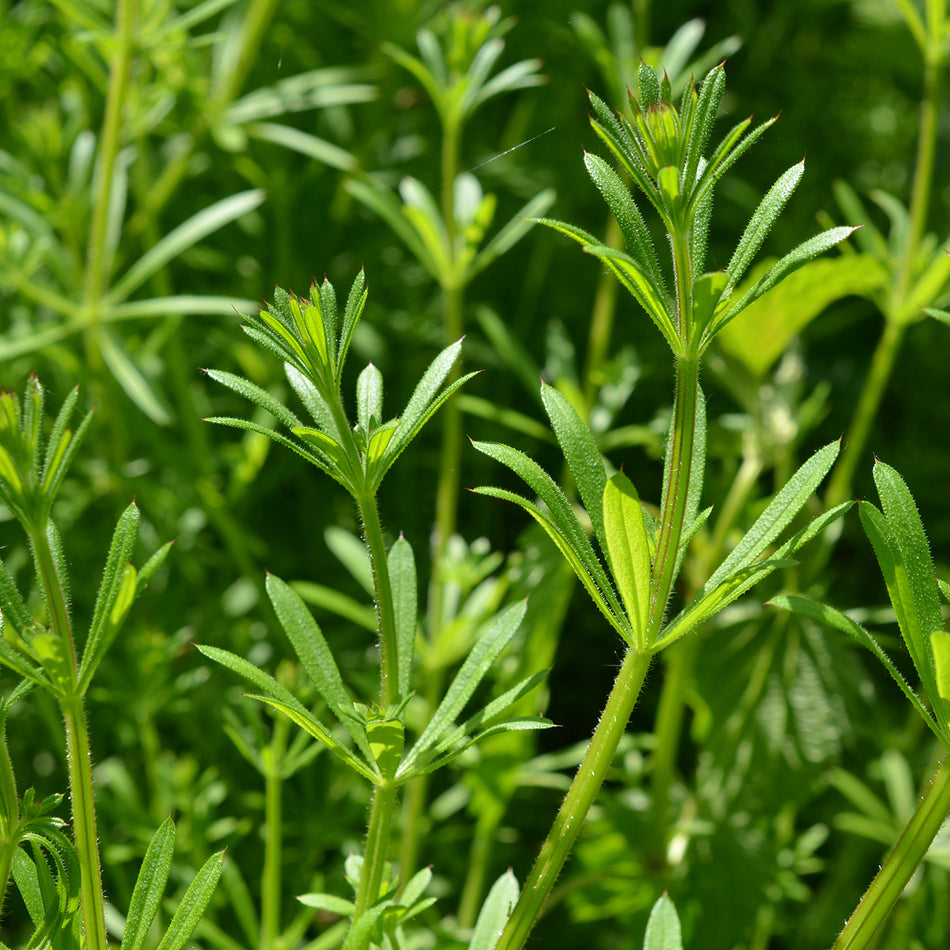
Cleavers
Galium aparineCleavers is a sticky spring green and lymphatic tonic that’s commonly used to detox, relieve water weight gain, and support urinary tract health.*
The Old English word “to cleave” means “to latch onto.”
What are the benefits of Cleavers?
Cleavers is cherished by herbalists and carefully collected each spring to break up the stagnation of the earlier winter season. Folk herbalists traditionally use the herb for clearing heat and to stimulate lymphatic flow throughout the body. This verdant green is often picked fresh and preserved in tinctures and vinegars during the spring season.
Sometimes called “the back alley” of the circulatory system, the lymphatic system helps remove waste products from the blood stream and maintain the immune system. By taking herbs like cleavers, you can help support the lymph system’s natural detoxification of the body to get yourself back in the flow. Our herbalists formulate with cleavers to support elimination, lymphatic flow, and urinary tract health.* You can find it in our Weightless® Cranberry and EveryDay Detox® Lemon teas.
The springtime allure of cleavers has survived since the time of the ancients when healers praised cleavers for its ability to relieve temporary water retention. Prominent Romans such as physician Galen and philosopher Pliny the Elder celebrated cleavers for its ability to relieve temporary water weight gain, while Greek physician Dioscorides used it to help curdle and filter milk—a tradition that’s still alive and well in Sweden today.
Folklore & Historical Use of Cleavers
It was also commonly prepared as a poultice and applied topically to treat light wounds, burns, and skin irritations. And on a softer note, historically it’s called bedstraw in Europe for its dried use as a mattress pad or filling. The sticky stems easily cling together to create an even support system.
Botany, Species, Habitat
Cleavers is a tenacious annual, growing in dense mats in loamy, nitrogen-rich meadows, forests, thickets and along seashores in the temperate climates of Europe, Northern Africa, Asia, and North America. It thrives in deep woodlands and at the edges with sun or dappled shade. With its square-shaped stem and sticky hairs, it manages to stick to whatever passes by, earning it memorable nicknames like “velcro plant,” “grip grass,” and “catch weed.”
In fact, cleavers earned its name from the Old English word, “to cleave,” which means “to latch onto.” It’s an annual green that grows to about four feet tall and is generally harvested until June to August before it blooms and seeds. The plant forms leaves of eight into spirals, or whorls, and tiny white flowers. Here in California, cleavers pop up by the multitudes in the spring. While easy to ignore as you walk by, cleavers won’t let you forget it once it attaches itself to your pant leg.
When To Use Cleavers
When seeking to relieve temporary water weight gain.
Regularly to promote lymphatic flow.
The Business of Sustainable Plants
Our business is rooted in plants, and for us, it’s a business imperative that we care for the ecosystems where these plants live and thrive. We believe that everything is interconnected, which means supporting ecosystems and the farmers and collectors who harvest and gather our herbs. Finding opportunities to reduce or eliminate emissions at the source, we support organic and regenerative farming practices as well as voluntary certifications like Organic and FairWild. These ensure the absence of pesticides, herbicides, as well as the ongoing sustainability of wild collection, and the health and livelihoods of the collectors who forage. Josef Brinckmann, Traditional Medicinals’ Research Fellow, Medicinal Plants and Botanical Supply, asserts, “Everyone has a role to play in preserving biological diversity. One way of doing that is by equitably supporting the local people to serve as stewards of the land.”
It Starts with Organic
We choose to source organic because we believe in the positive impacts it has on environmental sustainability, biodiversity, and overall ecosystem health. Organic helps us increase transparency while prioritizing consumer well-being and farmer success, which is key to producing the high-quality herbs we source. In 2021, we procured 2.73 million pounds of certified organic herbs, over 99.7% of our total botanical herbs purchased. Volumes were down slightly from FY20 due to timing of inventories received.
The impact from organic farming creates a vital ecosystem through improved soil health, water quality, pollinator habitats, and biodiversity. Organic farms also have increased carbon sequestration potential through long-term carbon storage in the soil, helping to mitigate climate change.
One of the benefits of organic that we most value is farmer health. We care deeply about the people who produce our herbs, ensuring that they are not exposed to synthetic chemicals found in conventional agriculture.
Fair Trade
We believe that everyone deserves a fair wage for hard work. That’s one of the reasons why we’re committed to fair trade. Traditional Medicinals® is a registered Fair Trade “brand holder”, “licensee” and “manufacturer,” and our products are certified by Fair Trade USA, an independent third-party certifier. We were an early adopter of Fair Trade, having launched our first fair trade tea product in 1998, just one year after Fairtrade International (FLO) was established. We continue to work closely with our network of producers to help them to implement fair trade standards and get certified.
EveryDay Detox® Lemon Tea
Weightless® Cranberry Tea
Additional Information
Legal Disclaimer:
The information and other content in this article are designed to provide a general overview of the botany, cultural history, and traditional uses of this herb. It is not intended and should not be construed as health advice. Every person is unique and you should consult with your health care provider before using any herbal product or supplement.

